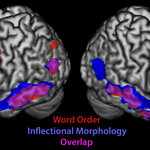
The word "adolescent" is defined as a young person; one who is at the stage between childhood and adulthood. The word means "lack" or "be short of", and it has been used by humanity since centuries ago for the young persons who are still short of maturity. All of us know that during this period of the life we are unable to think about the future consequences of our acting; therefore the need of the adult guide, someone who is able to understand the implications of the acts of the young.
If well this concept is not new, the understanding of its neurobiological roots is very recent. Now we know…


